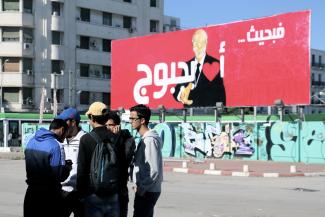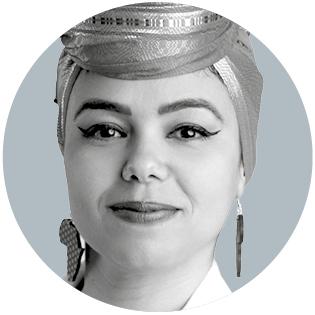Comment
Compromise-style politics

Around 5 million Tunisians were registered to vote, and 65 % of them did. Nidaa Tounes won 85 of 217 seats. This party was formed in 2012 and unites supporters of the pre-revolutionary regime, trade unions, opposition activists and anti-Islamist groups (see interview with Bochra Belhadj Hamida in D+C/E+Z 2014/10, p. 378 ff.).
The Islamist party Ennahda, which has historical ties to Egypt’s Muslim Brothers, came in second with 69 seats. In the Constituent Assembly, it was the strongest party, and led a coalition government called Troika for two years after the revolution. Ennahda later gave up administrative power and agreed to a technocratic government when it became obvious that Troika rule had become divisive. People were upset because the government had not been able – or perhaps unwilling – to prevent two assassinations. Partly inspired by the Muslim Brothers’ disaster in Egypt, Ennahda’s priorities became passing the new constitution and preparing orderly elections.
Ennahda’s two secular coalition partners were punished by the electorate. Other secular parties fared better. Radical Salafis were sidelined and will not play a role in parliament.
Both Nidaa and Ennahda ran professional, rational and pragmatic campaigns. Neither party claimed to offer solutions to all problems or to possess an eternal truth. On the other hand, both indicated that they wanted to assume responsibility. Nidaa strategically argued: “Not voting for Nidaa is a vote for Ennahda”.
Tunisia has been through many political crises since Zine El Abidine Ben Ali, the dictator, was toppled in early 2011. These crises were resolved in national dialogue. Compromise-style politics has worked. The election results show that Tunisians appreciate this, and that they want politicians to stay on this path. It was most welcome that Ennahda’s leadership congratulated Nidaa graciously.
The next major step will be the formation of the new government. Nidaa has three options. It can form an alliance with smaller secular parties, join forces with Ennahda or establish another technocrat government. The decision will not be taken fast. Beji Caid Essebsi, the leader of Nidaa, has said: “Everything will wait until after the presidential elections.” Those elections will take place at the end of November, and a run-off election may be needed in December. Nidaa suggests it may ally with Ennahda if the Islamists support Essebsi's campaign to become president. He is the Nidaa candidate.
Twenty-seven other politicians are running too. Essebsi is the frontrunner, but he is also the oldest candidate. A lawyer and politician, Essebsi held several important positions in Tunisia between 1963 and 1991, under both Habib Bourguiba and Ben Ali, before being appointed prime minister of the first transitional government in 2011.
Essebsi likes to speak of the “the prestige of the state”, pointing to the need to stabilise Tunisia’s politics, economy and security. Supporters say only he can stop the rise of Muslim fundamentalism. His opponents, on the other hand, accuse him of being a product of the ancien regime. Some leaders want the smaller secular parties to unite behind a single presidential candidate to beat Essebsi.
Mustapha Ben Jaafar, who is the Social Democrat who headed the Constituent Assembly, could be their man. Other contenders in the presidential race include the entrepreneur Slim Riahi and Moncef Marzouki, the current president. Kalthoum Kannou is the only woman running for the highest office. She is a champion of judicial independence and known as a fierce opponent of the former Ben-Ali regime.
Ennahda stated it will not compete in the presidential race. It is not officially backing any candidate, but many of its members support Marzouki on social media.
In any case, the next president will have a the huge responsibility to restore stability, security and economic prospects. Terrorism is rocking the Arab world, and Tunisia needs to find its path. The good news, however, is that the next president will not enjoy absolute powers. The government and future legislation will depend on the recently elected parliament.
Aya Chebbi is a Tunisian blogger.
aya.chebbi@gmail.com








